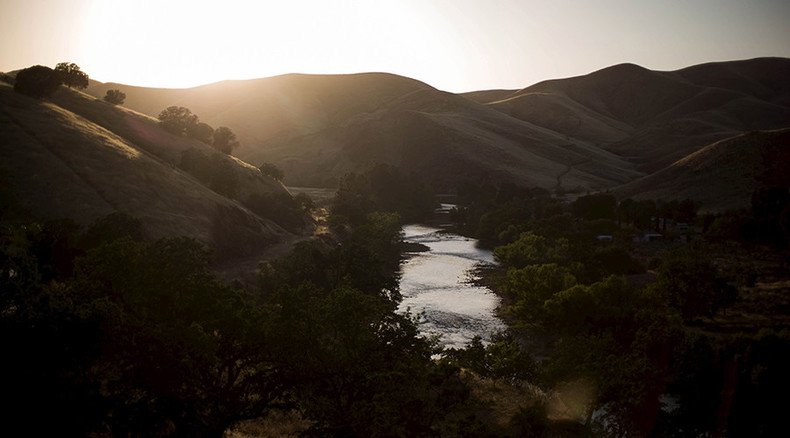H2NO: US court blocks Obama admin’s water pollution rule nationwide

A US court has temporarily blocked newly imposed federal water regulations, expanding a prior injunction nationwide. The much-debated “Water of the US” rule was challenged by 13 states in August, one day before it was due to take effect.
The US Court of Appeals for the 6th Circuit issued a nationwide stay against the Obama administration’s water regulations known as the Water of the US (WOTUS) rule. Finalized by the Environmental Protection Agency and the US Army Corps of Engineers in May, WOTUS was imposed on August 28 everywhere but in the 13 states that sued over it.
READ MORE: Kentucky, oil company colluded to keep spill settlement secret
The controversial rule, widely opposed by Republicans in Congress, farmers, and energy companies, granted the federal government broader authority over bodies of water, and also applies to ditches, streams and wetlands covered by the Clean Water Rule. One of the main disagreements is the exact amount of land subjected to the rule and how to determine the boundaries.
The Cincinnati-based appeals court ruled in favor of petitioners’ claim, which accused the EPA’s determination of interstate waters subjected to federal control – based mostly on the water’s distance and connection to larger bodies of water– of being “at odds” with a key Supreme Court ruling.
“A stay allows for a more deliberate determination [over] whether this exercise of Executive power, enabled by Congress and explicated by the Supreme Court, is proper under the dictates of federal law,” the court said Friday. “A stay temporarily silences the whirlwind of confusion that springs from uncertainty about the requirements of the new Rule and whether they will survive legal testing.”
No fracking way: Judge blocks Obama admin’s new energy regulations
http://t.co/LVfuhLMRh2pic.twitter.com/qOMEKXigH5
— RT America (@RT_America) October 1, 2015The judges still need to decide if they have the jurisdiction to review the regulation. A stay is meant to make it easier to determine that.
“We can enjoin implementation of the Rule if we determine that we have jurisdiction. But until that question is answered, our subject-matter jurisdiction is in doubt, and I do not believe we should stay implementation of the Clean Water Rule,” Circuit Judge David McKeague wrote.
The ruling expands on a prior injunction from 13 states. On August 27, a day before the WOTUS was due to take effect, federal judge Ralph Erickson of North Dakota determined the rule would “irreparably diminish the states’ power over their waters,” thus blocking the Obama administration’s environmental regulations.
North Dakota was joined by another 12 states: Alaska, Arizona, Arkansas, Colorado, Idaho, Missouri, Montana, Nebraska, Nevada, New Mexico, South Dakota and Wyoming.
Texas family sues fracking company after giant fireball erupts from water well http://t.co/7YcaKgGje2pic.twitter.com/z6MziuTgQM
— RT America (@RT_America) August 21, 2015The action of the 6th Circuit Court is seen as a victory among farmers and politicians, and as a defeat among environmentalists.
The National Federation of Independent Business, one of the groups that sued to stop the rule, applauded the decision, saying that “small businesses” breathed “a sigh of relief.”
“The court very properly acknowledged that the WOTUS rule has created a ‘whirlwind of confusion’ and that blocking its implementation in every state is the practicable way to resolve the deep legal question of whether it can withstand constitutional muster,” Karen Harned, executive director of the group’s legal foundation, said in a statement.
This is the second time this month that the Obama administration’s environmental efforts have been stymied in court. On Wednesday, Judge Scott Skavdahl of the US District Court of Wyoming blocked the government’s new energy regulations. The judge ruled that the Bureau of Land Management (BLM), the department behind new fracking regulations, does not have the authority to implement them.
The BLM rules would tackle the issue of fracking operations on federal land. It is designed to ensure that the oil and gas exploration process does not contaminate water sources. It would also oblige energy companies to inform the public about what kind of chemicals they use during their fracking operations.












